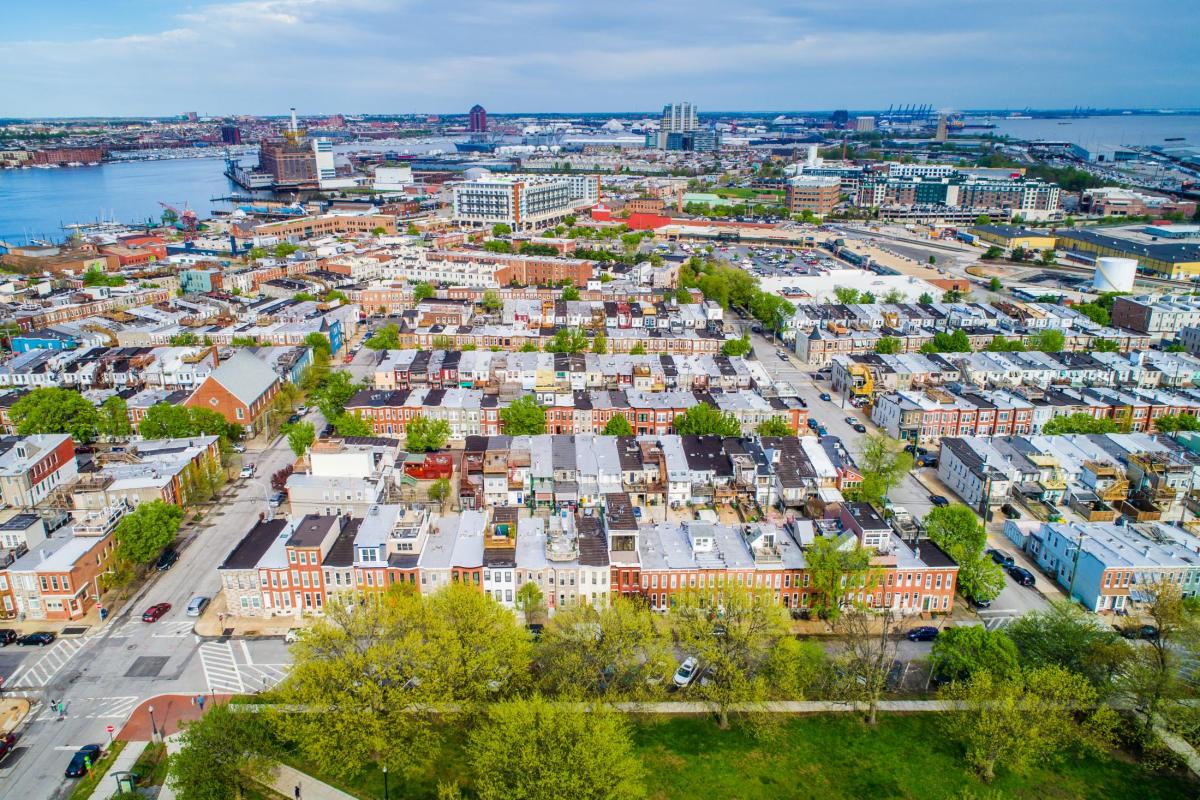
The Baltimore Police Department’s program of persistent aerial surveillance and digital-image recording of city residents violated the constitutional rights of citizens, the 4th Circuit U.S. Court of Appeals ruled Thursday.
The BPD’s six-month pilot last year, formally known as the Aerial Investigation Research program, ended in October after being allowed to continue while a challenge led by the Leaders of a Beautiful Struggle, a Black-led advocacy and justice organization, and the Maryland chapter of the ACLU moved forward in court.
In an 8-7 decision, the court ruled that the surveillance program “invades the recorded individuals’ reasonable expectation of privacy, conducting a search,” each time the Baltimore Police Department accesses the aerial surveillance footage. The court further described the police department’s power in this regard as “unchecked.” Chief Judge Roger L. Gregory said in his opinion that while people do not have an expectation of privacy while in public, they also do not expect “that their movements will be recorded and aggregated in a manner that enables the government to ascertain details of their private lives.”
Mayor Brandon Scott had previously said he would not reinstate the program, which was relaunched last year with the approval of former Mayor Jack Young after a similar, secret BPD effort discovered in 2016. However, the case remained relevant because the police department has kept stored digital recordings gathered during the April-October pilot. There also remained the concern among civil-liberty activists that the program could be restarted under a future administration.
“The court’s landmark ruling makes clear that the Constitution forbids police departments from deploying this kind of dystopian aerial surveillance,” Ashley Gorski, senior staff attorney in the ACLU’s National Security Project, said in a statement. “The AIR program’s technology presents a society-changing threat to everyone’s privacy, and as we’ve argued, the program never should have been permitted to get off the ground.”
In a strongly worded majority opinion, the federal court said that allowing the police to wield such mass, persistent surveillance “is anathema to the values enshrined in our Fourth Amendment,” which is designed to protect all people, suspects and the innocent alike, from unreasonable searches. The court, highlighting this magazine’s March story “Under Watch,” also noted that Baltimore is already “a thoroughly surveilled city.”
The court also documented the Baltimore Police Department’s history of over-targeting Black and Brown communities for policing, arrests, and surveillance. With the city totaling more than 300 homicides each over the past six years, Baltimore appeared to be a fertile test site to Persistent Surveillance Systems founder and former U.S. Air Force officer Glenn McNutt. But from the start, the effort overwhelmingly surveilled the city’s majority Black neighborhoods.
“This victory underscores how we cannot ignore Baltimore’s history of racism, exclusion, and police abuse of Black residents when deciding on programs and practices that are supposed to keep people safe,” said David Rocah, senior staff attorney for the ACLU of Maryland. “Hopefully, this invasive spy plane technology will now be stopped once and for all, not just here in Baltimore, but across the country.”
The project—often referred to as “the spy plane” in Baltimore—was run by the private Dayton, Ohio-based company Persistent Surveillance Systems, with funding by Arnold Ventures. To date, studies have shown the program to be of only minor assistance to police.
Dayvon Love, director of public policy for Leaders of a Beautiful Struggle, said in a statement that the organization never believed persistent aerial surveillance was a legitimate means of policing, nor an effective strategy to build safer communities.
“We have always sought to challenge the racial imbued ideology of police-ism: the belief that all urban problems must be addressed primarily or exclusively through the lens of policing,” Love said. “And we are gratified that Chief Judge Gregory saw the importance of that challenge.”
